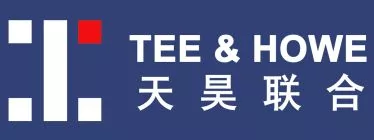This report of 226 pages is available at https://www.gov.cn/lianbo/bumen/202306/P020230612294618624831.pdf
Some highlights after my brief look (sorry, the report is just too long):
- 187 monopoly cases closed in 2022, with total fine of 784 million RMB (about 110 million USD).
- 1900+ enforcing personnel in 24 provinces.
- "Widely publicize the effectiveness of China's anti-monopoly work at multilateral and bilateral international conferences to expand international influence" (this is what said in the report).
- Alibaba and Meituan were specifically named to have implemented the required administrative measures.
- 18 monopoly agreement cases opened in 2022, 16 closed, with total fine of 569 million RMB (about 80 million USD). Cases in the report are all related to price fixing, in which three are local (two involving local organizations, one of concrete, one of rice), and the remaining one is foreign (Straumann, a Swiss company manufacturing dental implants, for setting lowest prices for sales).
- 13 abuse of market dominance cases in 2022, with total fine of 166 million RMB (about 23 million USD). 10 state-owned enterprises and 4 private enterprises were fined. State-owned enterprises involved include natural gas supply company and water supply company, both got caught because of tie-up restrictions. The private enterprise (really private?) involved is CNKI, the biggest scientific journal publishing company in China.
- 867 undertaking concentration cases (i.e. involving merger) opened, and 794 closed in 2022, with 5 cases approved with restrictions, with the following highlights:
a) Local enterprises 413 cases, increase by 24%.
b) Foreign enterprises 297 cases, increase by 37%.
c) Local and foreign enterprises 84 cases, decrease by 26%.
d) State-own enterprises 312 cases, increase by 101%.
e) Private enterprises 339 cases, increase by 17%.
f) One only foreign cases is the merger of AMD with Xilinx (primarily supplies programmable logic devices, acquired by AMD in 2022). This was approved with restrictions mainly on no tie-up, continuous supply under FRAND, and compatibility with 3rd party devices.
- It is interesting to see that most of the "victims" are Chinese enterprises, with many state-owned enterprises. However, it can be seen that the tentacles are extending to foreign enterprises.
- The cases in the report appear to be closed with proper reasons (of course, otherwise what is the point of showing these?). However, whether such anti-monopoly measures would be used as a political tool is yet to be seen.
- I believe it is fair to say China is trying to pioneer, if not already pioneering, in the area of anti-monopoly. On the other hand, my understanding is that Europe is also active in this, and would like to have comments from the fellows in Europe.
As you know, I am not an expert in anti-monopoly, standard setting, and related topics. Fellow readers with such knowledge, please let me have your thoughts.
The content of this article is intended to provide a general guide to the subject matter. Specialist advice should be sought about your specific circumstances.

